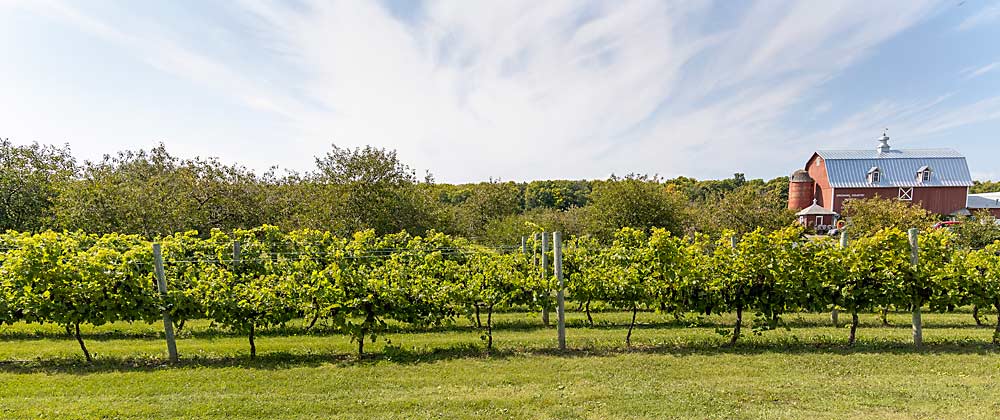
Bob Lautenbach was a “cherry grower through and through,” but when tart cherry prices started to go south, he knew it was time to diversify. His two decades of diversification paid off, according to his children, who inherited a multifaceted fruit and agritourism business in July when Lautenbach died after suffering complications from a heart attack at age 72. It’s a business the Wisconsin family hopes they can pass down to the next generation, said his daughter, Carrie Lautenbach-Viste.
The hard part for Carrie and her siblings will be living up to his legacy.
“He left a pretty big hole around here,” she said. “He was so passionate about what he did. He loved his land and would share that with anybody that walked on the property.”
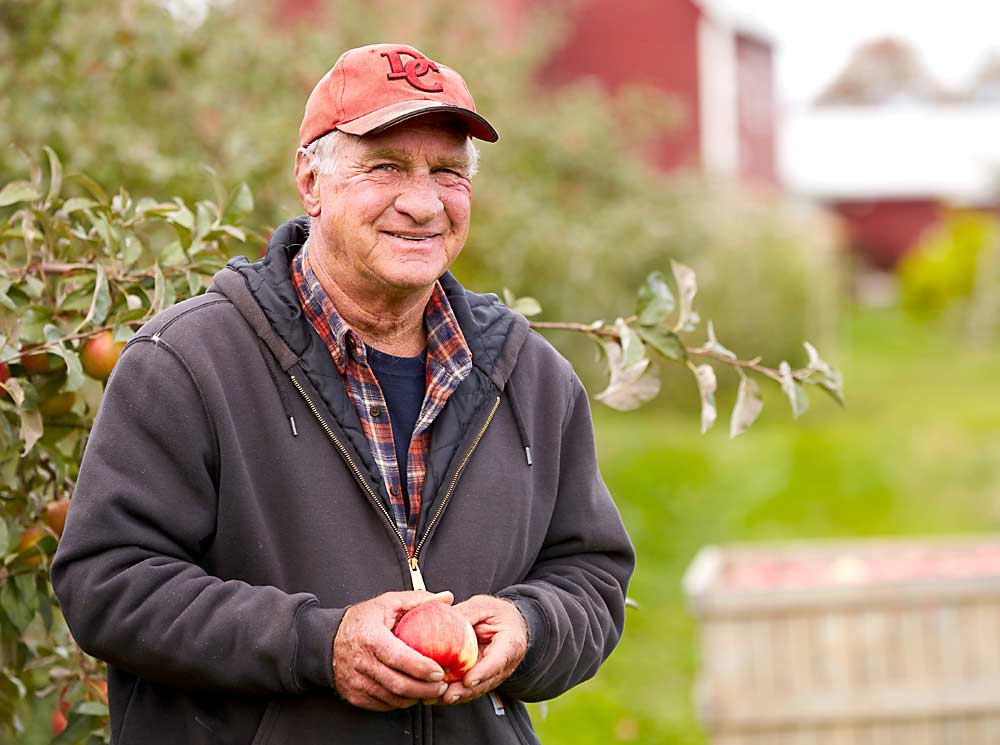
Lautenbach’s Orchard Country started as a small dairy farm with a few fruit trees in eastern Wisconsin’s Door County, part of the Door Peninsula that separates Green Bay from Lake Michigan and a well-known fruit and tourism region. Sitting on busy Highway 41 near the town of Fish Creek, the farm is perfectly situated to attract the eyes of the millions of tourists who flock to Door County every summer and fall. Those visitors are looking for something to do, and thanks largely to Bob’s efforts, the Lautenbachs have plenty of diversions to offer.
“He was definitely the visionary for this place,” Carrie said. “Our dad’s philosophy was to create an experience that keeps people coming back.”
Bob’s parents bought the farm in 1955. They didn’t keep the dairy cows for long, but they planted more fruit trees and sold quarts of cherries by the roadside. By the time Bob took over the farm in the early 1970s, after his parents died, he had already acquired a wide range of skills working multiple jobs to support his young family.
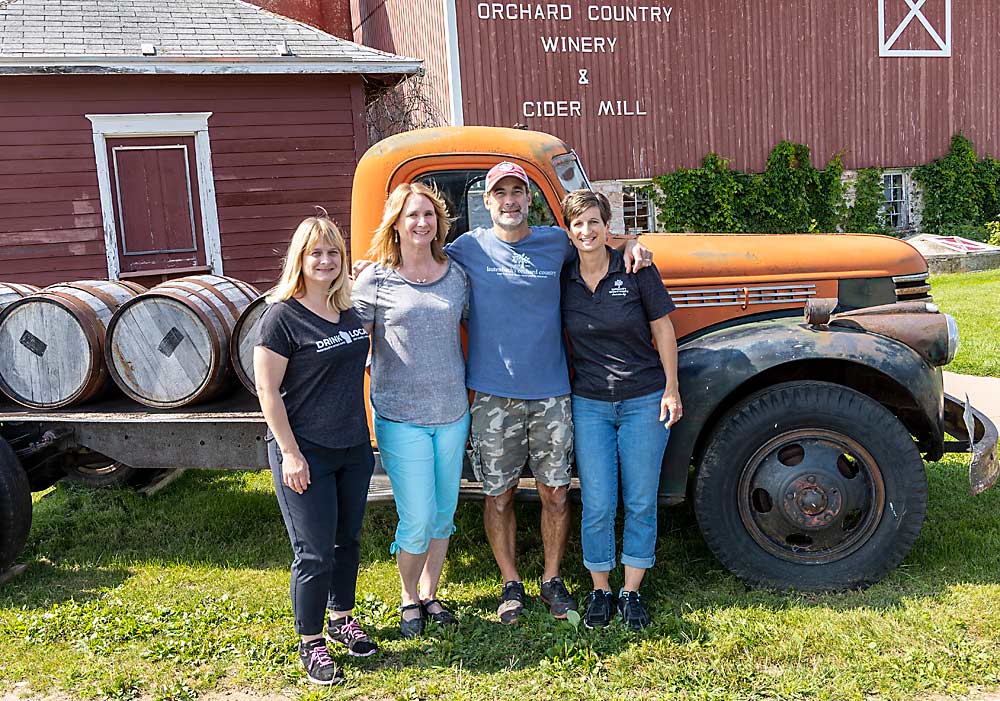
Four of Bob’s five children are now running the family business. Carrie and Erin worked closely with their dad for nearly three decades. Chris moved back home about five years ago. Melissa has been spending more time in the retail store the past couple of years. Their goal now is to maintain and improve on what their father started. And between the market, winery, art gallery, U-pick orchards, picnic areas — even an area for spitting cherry pits — there’s plenty to keep everybody busy.
Bob built the first farm market building in 1975, and he kept adding on over the years. That building was destroyed in a 2005 fire, but the family rebuilt the market and has continued to expand. They turned the old dairy barn into a winemaking facility, with an initial focus on making cherry wines, Carrie said.
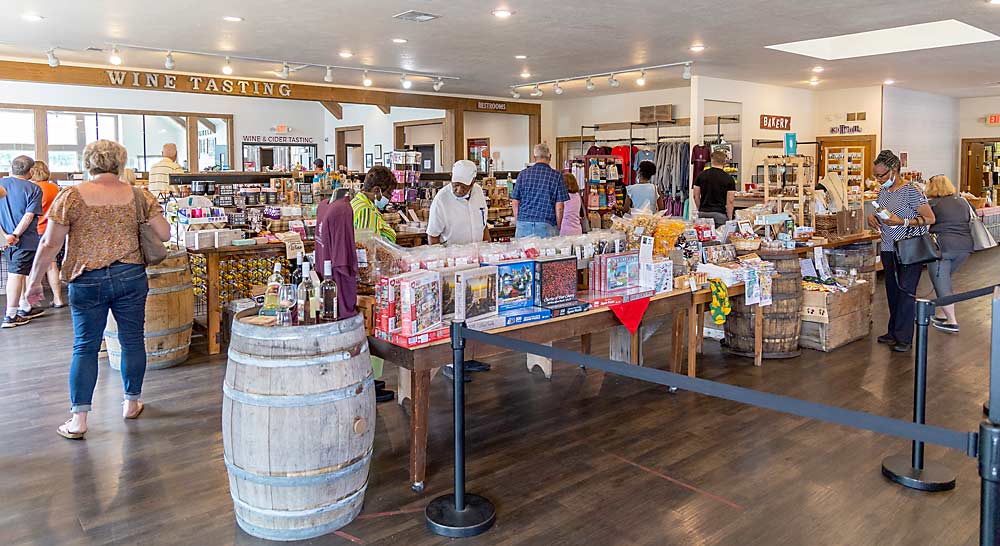
These days, they grow 60 acres of cherries, mostly Montmorency but with a few Balatons and sweet varieties, and 20 acres of apples. The cherries are sold through various channels, both fresh and processed, and the U-pick apples are popular, especially Honeycrisp. As much as possible, they make wines, ciders and juices using their own fruit. They started a hard cider company a few years ago, sourced from their own apples, cherries and pears, Carrie said.
About two decades ago, Bob planted another fruit crop, an unusual one for Door County: grapes. Vineyard plots on the Door Peninsula are small and scattered, and Vitis vinifera varieties have not been known to survive. But after consulting with a winemaker friend from California and working with researchers at the University of Wisconsin’s nearby Peninsular Agricultural Research Station to figure out which varieties to plant, Bob decided to try cold-hardy grapes.
He planted his first vineyard plot in 1999. The first plantings were Frontenac and Marechal Foch, and the first wine made was a blend of the two, named Audrey Grace after Bob’s first grandchild. Today they grow about 8 acres of grapes, including La Crescent, St. Pepin, Marquette, Petite Pearl and Frontenac Gris. Their wine list consists of more than 40 wine varieties, four of them named after Bob’s grandchildren. They sell bottles on-site, distribute to Wisconsin retail stores and ship some direct to consumers.
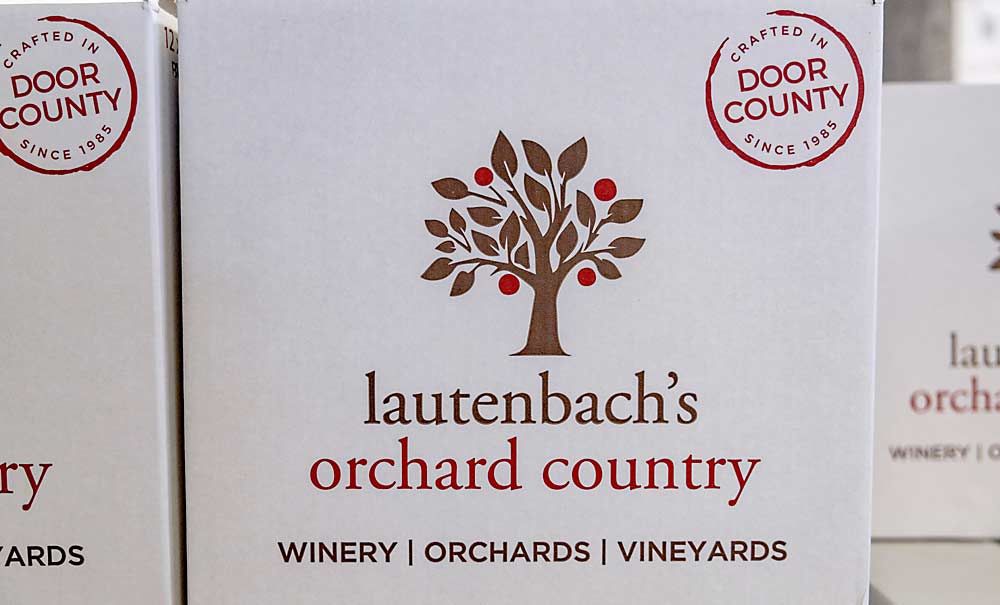
Pests and diseases don’t hit grapes too hard on the peninsula, as long as you spray on time. But grapes require a lot of hand labor, and labor in general is tougher to come by, said Carrie’s husband, Jody Viste. As grounds manager, Viste does most of the fruit-growing these days. He joined the family farm in 2005, when Bob was looking for extra help to maintain the expanding business and grounds. With a landscaping and carpentry background, Viste had no farming experience when he started, but he learned a lot from Bob and knows which local growers to call if he has a question.
“I wasn’t sure I would like it when I started, but there’s enough here to keep me busy,” he said. “I’m never doing the same thing two days in a row.”
Not that it’s easy living up to Bob’s legacy. Viste knows Bob set a high bar. Every member of the Lautenbach family knows that.
“We owe it to him to keep this going as long as we can,” Chris Lautenbach said. “That’s what he would have wanted.” •
—by Matt Milkovich






Great article Matt, thank you!
First thing I would like to say to Bobs family is I’m so sorry to hear that Bob passed almost a year ago, he was a one of a kind hard working man, my deepest sympathy to you all. I was just looking to see how things in Door Co. were going and I found out the news. I’m so glad that the family has made the most out of what Bob would of wanted for each and every one of you. I worked with Bob back in 1975 when he was working one of those odd jobs, Omnibus Ski Hill, I was Bobs right hand man, making snow, grooming, clearing, ect. it was a experience I will never forget, and a education in about everything a young 18 year old could get his dirty hands on! I never did get to thank Bob properly for taking a green horn under his wing and making the best of a dark but great experience. I would like to wish all the best and hope Bobs legacy will always be on that special piece of Door Co.Lautenbach’s Orchard Country, God bless you all